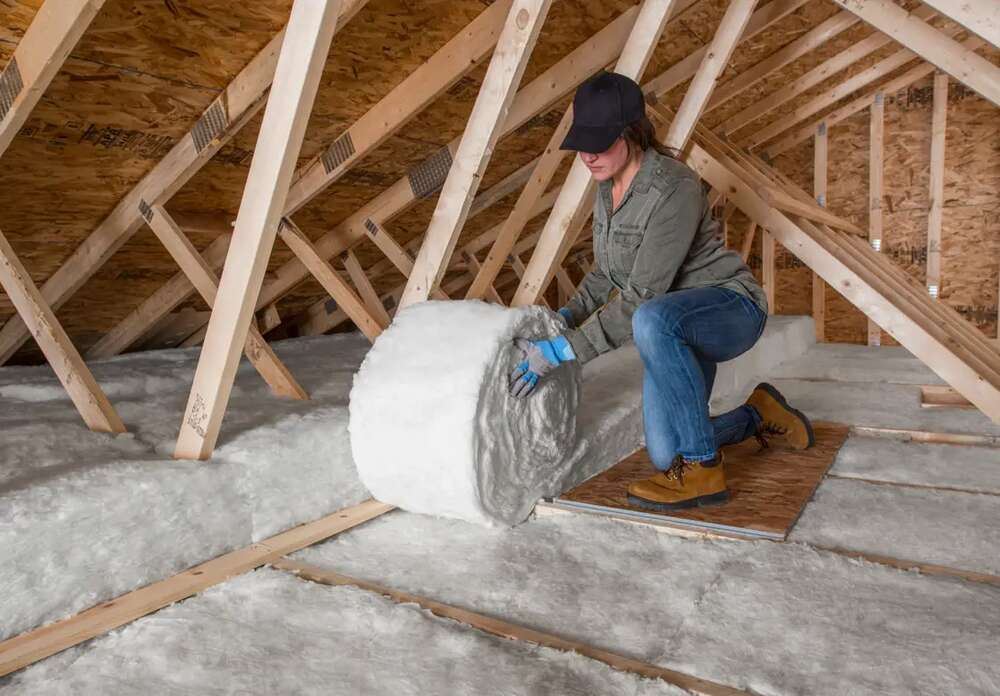Many homeowners are tempted to cut costs by insulating their attic themselves. While DIY attic insulation in Denver or in any US home might seem like an easy weekend project, it often leads to poor results, hidden costs, and potential long-term damage. The U.S. Department of Energy has found that improper insulation can increase energy bills by up to 20%, significantly offsetting any upfront savings.
In this post, we’ll explore why trusting an expert attic insulation contractor is a safer and smarter investment for your home.
The Risks of DIY Attic Insulation
DIY attic insulation might appear straightforward, but several risks can compromise the performance of your insulation and even harm your home’s structure.
- Improper Installation: One of the most common issues with DIY insulation is poor installation. Even a small gap or misalignment can dramatically reduce the effectiveness of insulation. A study by the Building Performance Institute found that incorrectly installed insulation could result in energy losses of up to 30%.
- Ventilation Problems: Most DIYers overlook the importance of attic ventilation. Without proper ventilation, moisture can accumulate, leading to mold growth, wood rot, and even structural damage. Experts from the Environmental Protection Agency (EPA) highlight that poor attic ventilation is one of the leading causes of indoor air quality issues.
- Incorrect Material Choice: Homeowners often choose the wrong insulation material, either because they don’t understand the R-value (a measure of insulation’s effectiveness) or because they opt for cheaper options. A professional like TLS Energy Savers will assess your attic and recommend the best material—whether fiberglass, spray foam, or cellulose—for your specific needs.
- Health and Safety Hazards: Installing insulation without proper protective gear can expose you to harmful chemicals or fibers. According to the Occupational Safety and Health Administration (OSHA), DIY insulation can release particulates that irritate the skin, lungs, and eyes, posing health risks to non-professionals.
The Cost of DIY vs. Professional Attic Insulation
While DIY insulation might seem cheaper at first glance, many hidden costs can arise. Here’s why opting for a Attic Insulation Contractor is more cost-effective in the long run:
- Energy Inefficiency: Poorly installed insulation can lead to energy inefficiency, driving up your heating and cooling costs. The Energy Star program states that proper insulation can reduce heating and cooling costs by up to 15%, whereas poorly installed insulation can lead to little or no savings.
- Costly Repairs: If insulation is not correctly installed, it can result in air leaks, moisture damage, and even structural issues, requiring expensive repairs. Hiring a professional contractor ensures that the job is done right the first time, avoiding these costly pitfalls.
- Product Warranties: Many insulation products come with warranties that are voided if not installed by a licensed professional. Working with an expert ensures you’re covered if anything goes wrong.
Why Hiring an Expert is the Smart Choice?
Hiring a professional attic insulation contractor provides peace of mind that your insulation will perform optimally and last for decades. :
- Comprehensive Home Assessment: Professionals start with a detailed inspection of your attic, evaluating factors such as current insulation levels, air leaks, and potential moisture problems.
- Expertise in Material Selection: They recommend the best insulation material based on your home’s specific requirements. For instance, spray foam might be ideal for homes prone to air leaks, while fiberglass could be more suitable for high-temperature regions.
- Ensuring Proper Ventilation: A critical aspect often ignored by DIYers, proper ventilation is essential to prevent moisture buildup and mold. According to studies by the U.S. Department of Energy, homes with balanced insulation and ventilation achieve the highest energy efficiency and air quality.
- Professional Installation Standards: Professionals follow strict guidelines to ensure the insulation is installed correctly, with no gaps or compressed areas that could reduce performance. They also make sure the insulation reaches the recommended R-value for your region’s climate.
- Quality Control and Safety: Contractors adhere to safety standards during installation, minimizing any risks of chemical exposure or physical harm.
The Long-Term Benefits of Professional Installation
Choosing a professional insulation contractor like TLS Energy Savers for attic insulation provides numerous long-term benefits:
- Increased Energy Savings: With proper installation, homes can see significant reductions in their energy bills. A report from the North American Insulation Manufacturers Association (NAIMA) states that fully insulated homes save, on average, $200 per year on energy costs.
- Enhanced Home Comfort: Proper insulation ensures consistent indoor temperatures, eliminating hot and cold spots, making your home more comfortable year-round.
- Higher Resale Value: A study from Zillow found that energy-efficient upgrades, including proper attic insulation, can increase home value by up to 2%. Buyers today are looking for homes that are both comfortable and energy-efficient, making professional insulation a key selling point.
- Durability and Longevity: Professionally installed insulation lasts longer and performs better over time. With warranties and follow-up services offered by contractors you can rest assured that your investment is protected for years to come.
Scientific Reasons to Avoid DIY Attic Insulation
Several studies support the argument for hiring professional contractors for insulation projects:
- Thermal Performance: Research from the Lawrence Berkeley National Laboratory indicates that professional insulation contractors achieve 20% higher thermal performance than DIY installations, thanks to precise material placement and air sealing techniques.
- Health and Safety: The U.S. Consumer Product Safety Commission (CPSC) has documented numerous cases of homeowners suffering from respiratory issues or skin irritation due to improper handling of insulation materials.
- Energy Efficiency: A 2019 study by the American Council for an Energy-Efficient Economy (ACEEE) found that professionally installed insulation can improve home energy efficiency by up to 25%, while DIY projects average less than half of that improvement.
Conclusion
While DIY attic insulation may appear to save money, it often leads to costly mistakes and poor performance. Trusting an expert contractor ensures that your attic insulation is installed correctly, resulting in greater energy efficiency, increased home comfort, and long-term savings.

